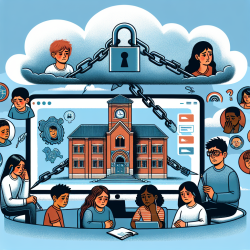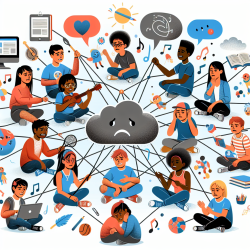Introduction: The Role of Telehealth in Mental Health Care
The COVID-19 pandemic has profoundly impacted mental health worldwide, highlighting the urgent need for accessible and effective mental health care solutions. Telehealth has emerged as a critical tool in bridging the gap, especially in areas with limited access to traditional mental health services. This blog delves into the research findings from the article "Mental Health and COVID-19: Implications for the Future of Telehealth" to provide insights for practitioners aiming to enhance their telehealth skills and improve patient outcomes.
Understanding the Impact of COVID-19 on Mental Health
The pandemic has led to an increase in mental health disorders, suicidal ideation, and suicide rates. The disruption of in-person mental health services has necessitated the adoption of telehealth solutions. This shift has not only ensured continuity of care but also highlighted the potential of telehealth to address mental health care disparities, particularly in rural areas.
Key Findings and Recommendations
- Increased Access: Telehealth can significantly improve access to mental health care for individuals in rural and underserved areas, where traditional services are scarce.
- Preventative Measures: By leveraging telehealth, practitioners can provide preventative mental health care during and after pandemics, potentially reducing the incidence of mental health disorders.
- Effective Use of Technology: Practitioners are encouraged to explore both synchronous and asynchronous telehealth formats to tailor care to individual patient needs.
Implementing Telehealth Best Practices
Practitioners can enhance their telehealth services by incorporating the following strategies:
- Training and Education: Continuous professional development in telehealth technologies and methodologies is crucial for delivering high-quality care.
- Patient Engagement: Utilize interactive tools and platforms to maintain patient engagement and ensure effective communication during virtual sessions.
- Data-Driven Approaches: Collect and analyze patient data to refine telehealth practices and improve treatment outcomes.
Encouraging Further Research
The research underscores the need for further studies to understand the long-term effects of telehealth on mental health outcomes. Practitioners are encouraged to contribute to this body of research by documenting their experiences and outcomes with telehealth interventions.
Conclusion: A Call to Action
As we navigate the ongoing challenges posed by the COVID-19 pandemic, the integration of telehealth into mental health care presents a unique opportunity to enhance service delivery and reduce disparities. By adopting data-driven practices and continuously improving telehealth skills, practitioners can play a pivotal role in shaping the future of mental health care.
To read the original research paper, please follow this link: Mental Health and COVID-19: Implications for the Future of Telehealth.










